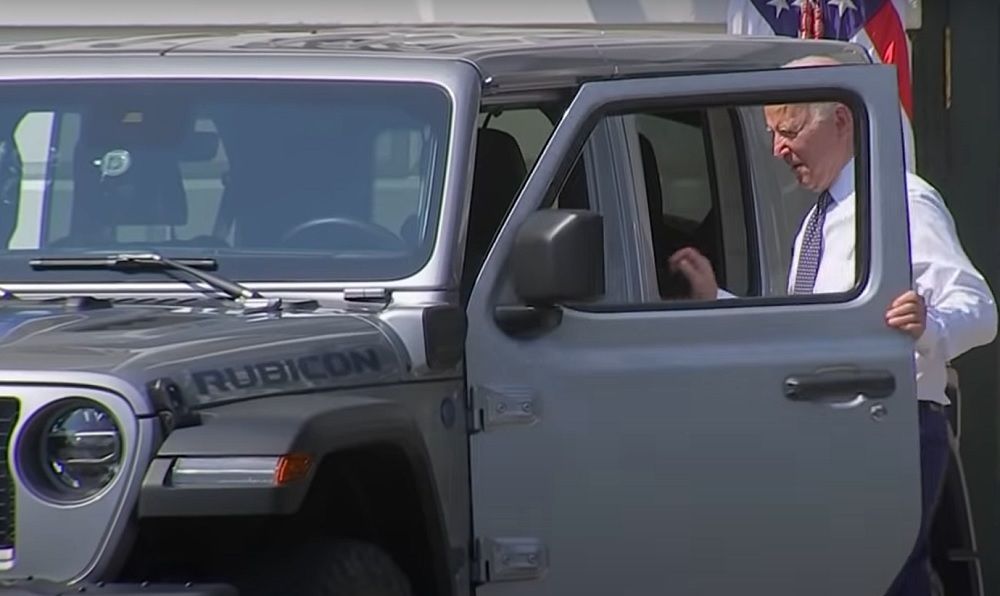US urged to designate nickel as a 'critical mineral' to support domestic batteries supply chain
 |
|
'EV Force 1': President Biden took a spin around the White House south lawn in an electric Jeep Wrangler in August, after signing an executive order setting out a target for 50% of all passenger vehicles sold in the US by 2030 to be electric. Image: C-Span
|
The US Geological Survey (USGS) has said there is a "compelling case” to add nickel to a national list of critical minerals, to strengthen development of a home-grown US battery materials supply chain for electric vehicles and energy storage systems.
There is an increasing demand for nickel as a component for producing cathodes for lithium-ion batteries – and "the limited mining, smelting, and refinery capacity in the United States make a compelling case for inclusion”, the USGS said.
The announcement follows President Joe Biden’s signing of an executive order, setting a target for 50% of all passenger vehicles sold in the US by 2030 to be electric.
Now the USGS has launched a public consultation period, to consider proposals to add nickel and zinc to an updated list of minerals deemed critical to national economic and national security interests.
The USGS has proposed increasing the critical minerals list to 50 commodities, compared to 35 commodities and groups on the last list finalised in 2018.
Under the US Energy Act of 2020, a "critical mineral” is defined as a non-fuel mineral or mineral material essential to the country’s economic or national security, as well as the supply chain, which is vulnerable to disruption.
US Assistant Secretary of the Interior for Water and Science, Tanya Trujillo, said: "The USGS’s critical minerals list provides vital information for industry, policymakers, economists and scientists on the most important minerals when it comes to US supply chains.”
Related articles in our archive:
There is an increasing demand for nickel as a component for producing cathodes for lithium-ion batteries – and "the limited mining, smelting, and refinery capacity in the United States make a compelling case for inclusion”, the USGS said.
The announcement follows President Joe Biden’s signing of an executive order, setting a target for 50% of all passenger vehicles sold in the US by 2030 to be electric.
Now the USGS has launched a public consultation period, to consider proposals to add nickel and zinc to an updated list of minerals deemed critical to national economic and national security interests.
National security
The USGS has proposed increasing the critical minerals list to 50 commodities, compared to 35 commodities and groups on the last list finalised in 2018.
Under the US Energy Act of 2020, a "critical mineral” is defined as a non-fuel mineral or mineral material essential to the country’s economic or national security, as well as the supply chain, which is vulnerable to disruption.
US Assistant Secretary of the Interior for Water and Science, Tanya Trujillo, said: "The USGS’s critical minerals list provides vital information for industry, policymakers, economists and scientists on the most important minerals when it comes to US supply chains.”
Related articles in our archive:

